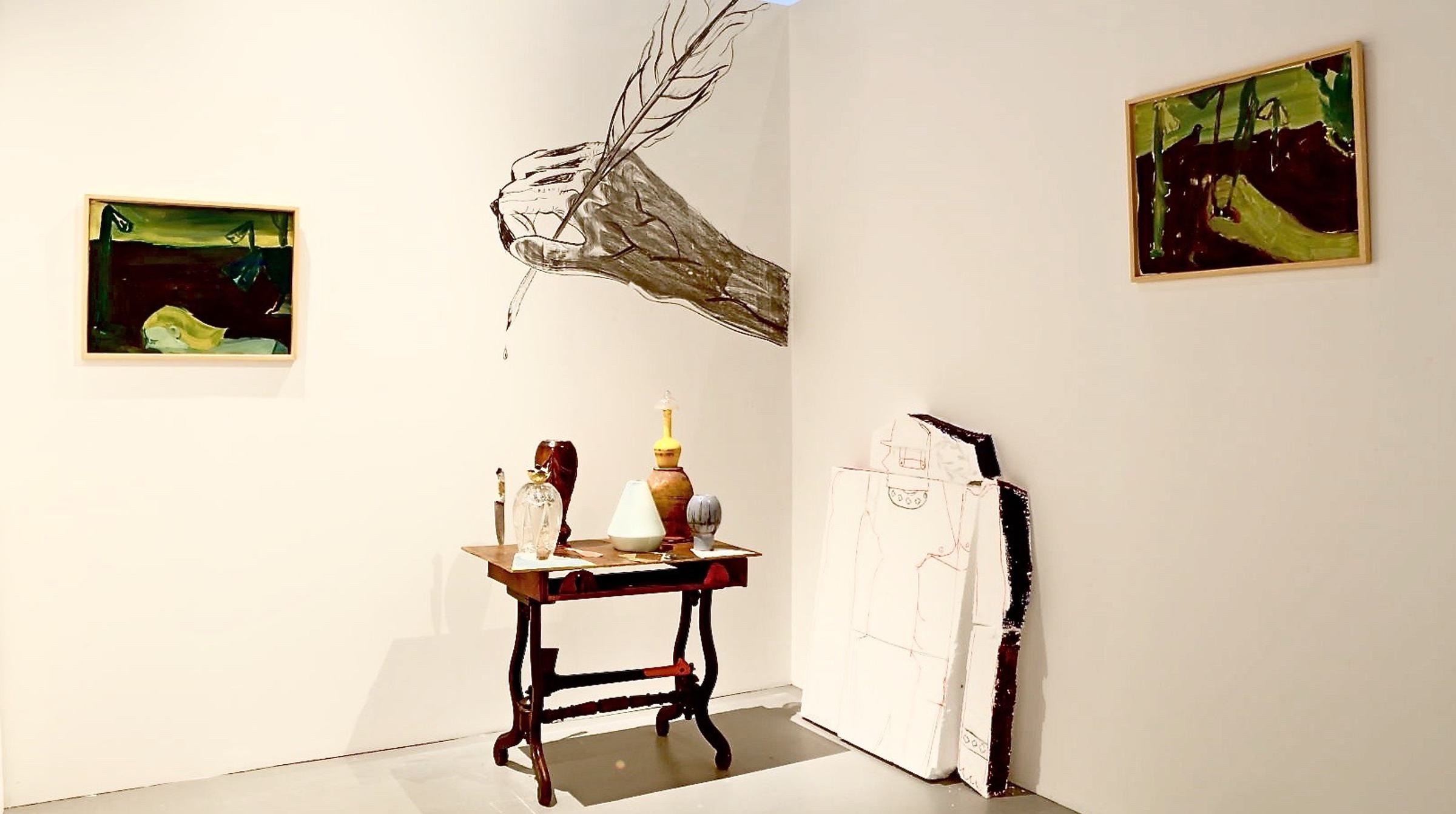This exhibition began in the fall of 2012 with conversations addressing that which is not directly tangible or easily verbalized—touching upon the unexpectedly longed for—a shared space filled with hybrid feelings, crossing points and everyday magic that inspire subjective rituals. Touching on the precondition of simultaneous belief and non-belief, these conversations pondered the questions: is everything truly a construct, how a mood can be shared, subjective codes exchanged, one creative language translated into another, and how can a common game be played when one is looking for a missing part.
Ritual Room turned into a walk which ties together the different creative practices of the artists involved that create experiences for themselves and for others. Thus the walk will be dynamic, taking the viewer through parallel spaces, transitional states, shifting times of the day and open narratives. This exhibition contains stories and characters that vanish if they are not believed in. Here matter hardens and grows resistant while sleep, thoughts and imagination become tangible parts of practical metaphysics. Movement becomes materialized when one is immersed within it or upon entering a future where fiction becomes the commonness of science.
The concept of the exhibition was developed during the five week-long residency project The Ritual Room, which took place in Nida Art Colony from 1st of October till 4th of November 2012. Curators of the project Ūla Tornau and Asta Vaičiulytė invited a number of artists using different mediums and ways of creating to live and work together for five weeks. The project topic was left open, but as a starting point the curators suggested immersion into common slow time in the remote landscape of Nida and several keywords: coded languages, contemporary rituals, subjective mythologies, magic of everyday ways, urban tales in the countryside, urban mysticism, nostalgic rock and new / old visuality.
With: Distruktur, Ilya Dounar, Egyboy, Josef Faus, Axel Linderholm, Lea Porsager, Melanie Smith, Jonas Žukauskas ir Jurga Daubaraitė. Curated by: Ūla Tornau and Asta Vaičiulytė
